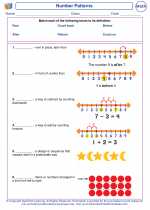Number Patterns -> geometric patterns
Geometric Patterns
Geometric patterns are sequences of shapes or objects that are arranged in a specific order or sequence. These patterns can be found in various forms such as tessellations, tiling, and other repeating visual arrangements.
Types of Geometric Patterns
There are several types of geometric patterns, including:
- Regular Patterns: These are patterns that repeat in a predictable manner, such as a sequence of squares, triangles, or circles arranged in a specific order.
- Tessellations: Tessellations are patterns made up of repeating shapes that completely cover a plane without any gaps or overlaps.
- Fractal Patterns: Fractal patterns are complex geometric patterns that exhibit self-similarity, meaning they have the same appearance at different scales.
- Symmetrical Patterns: These patterns have symmetry, meaning that one part of the pattern mirrors the other part.
Examples of Geometric Patterns
Some common examples of geometric patterns include:
- Checkerboard Pattern: A pattern of alternating colored squares arranged in a grid.
- Herringbone Pattern: A pattern of parallel lines in a zigzag arrangement, often seen in flooring or textiles.
- Hexagonal Tiling: A pattern of hexagons arranged in a repeating, interconnected fashion.
- Arabesque Patterns: Elaborate and intricate patterns often found in Islamic art and architecture, characterized by geometric and floral designs.
Application of Geometric Patterns
Geometric patterns have various practical applications in art, design, architecture, and mathematics. They are used in creating visually appealing designs, decorative motifs, and in the study of symmetry, tessellations, and spatial relationships. Understanding geometric patterns also helps in developing spatial reasoning skills and problem-solving abilities.
Overall, geometric patterns are a fascinating aspect of mathematics and art, offering a wide range of creative and intellectual opportunities for exploration and discovery.
[Geometric Patterns] Related Worksheets and Study Guides:
.◂Math Worksheets and Study Guides Second Grade. Number Patterns

 Worksheet/Answer key
Worksheet/Answer key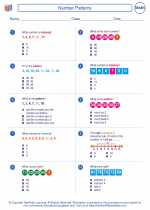
 Worksheet/Answer key
Worksheet/Answer key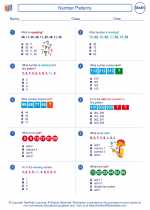
 Worksheet/Answer key
Worksheet/Answer key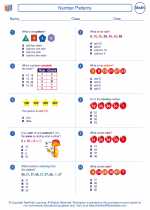
 Worksheet/Answer key
Worksheet/Answer key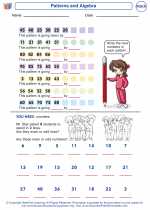
 Worksheet/Answer key
Worksheet/Answer key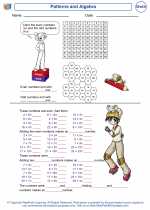
 Worksheet/Answer key
Worksheet/Answer key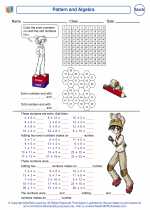
 Worksheet/Answer key
Worksheet/Answer key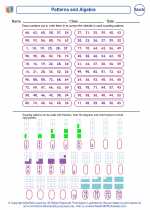
 Vocabulary/Answer key
Vocabulary/Answer key